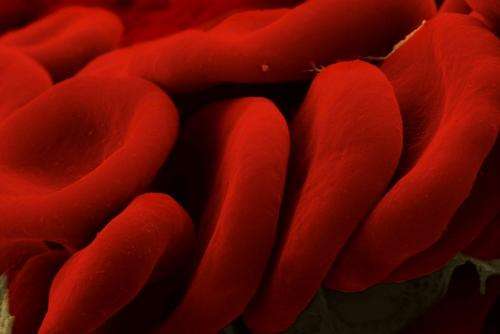Pursuit of scalable, on-demand blood for transfusions could yield novel means of therapeutics delivery

Red blood cells are the most transfused blood product in battlefield trauma care. Unfortunately, they are sometimes in limited supply in a battlefield environment. DARPA created its Blood Pharming program to potentially relieve this shortage by developing an automated culture and packaging system that would yield a fresh supply of transfusable red blood cells from readily available cell sources. If the program is successful, it will eliminate the existing drawbacks of laboratory grown red blood cells, including cost, production efficiency and scalability, compared to those grown inside the human body. Pharmed blood could also offer additional benefits. These potential benefits include eliminating the risk of infections from donors, on-demand availability, avoiding the detrimental effects of storing donated blood, and circumventing the issue of matching blood types between donor and recipient.
Before pharmed blood becomes practical for common use, the production costs must be significantly reduced. Under the Blood Pharming program, DARPA has decreased the cost of the chemical stock required to support blood growth for one unit of blood from more than $90,000 per unit to less than $5,000 per unit. DARPA believes that future reductions in the cost of chemical stock for unmodified red blood cells will eventually make pharmed blood practical for basic transfusions.
Recently, in addition to reducing production costs, DARPA performers have been investigating how pharmed red blood cells can potentially be modified to offer value-added benefits to the recipient beyond replenishing lost blood. Specifically, the Blood Pharming program is currently pursuing proofs of concept for customized red blood cells that offer such novel functionality. A group of program performers led by Celgene Cellular Therapeutics is exploring ways to modify the surface or interior of red blood cells to serve as vessels that can hold a variety of medical payloads, including vaccines, anti-toxins, diagnostics, antibodies to neutralize pathogens, and novel therapeutics. Unmodified blood could be taken from a donor and modified to deliver a particular medical payload. This modified blood could then be grown outside of the body and returned to the donor to provide a desired clinical response.
Since mature red blood cells do not contain a nucleus, their successful customization would represent a new class of cellular therapeutics that would provide DNA-free delivery of biologically based vaccines and therapeutics to treat disease and respond to trauma. The modified blood cells could benefit a recipient for up to 120 days (the lifetime of a red blood cell) before naturally expiring from the recipient's system, extending the effective window of some therapies from hours to months. Other modifications to red blood cells could result in universal donor cells that do not provoke immune reactions in recipients. In standard blood transfusions, the blood types of donor and recipient must be matched, which can be an issue when certain blood types are in low supply.
"We are pursuing several promising approaches to modification of red blood cells to carry payloads," said Dan Wattendorf, DARPA program manager for Blood Pharming. "One line of research involves coupling proteins on the surface of a red blood cell with an inert chemical handle that can attach to virtually any payload. We've been initially successful, and even better, our team has shown that modifying these cells doesn't disrupt the ability to continue to grow them in a laboratory or to survive in an animal."
More information: www.darpa.mil/Our_Work/DSO/Pro … /Blood_Pharming.aspx

















